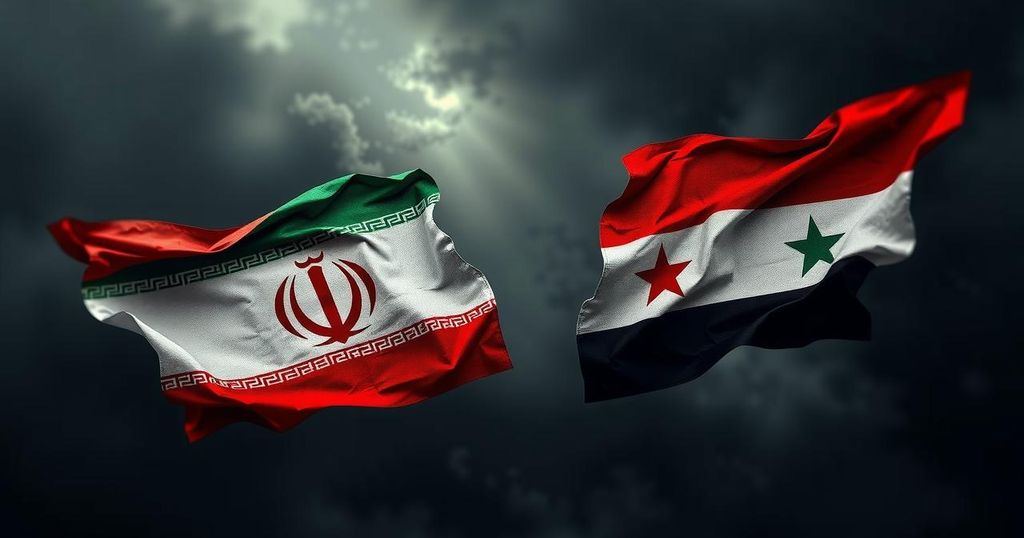Iran and Syria Strengthen Alliance Amid Regional Changes and Tensions

Syrian Foreign Minister Bassam al-Sabbagh recently visited Iran to meet with Foreign Minister Abbas Araghchi, reaffirming the strong alliance between the two nations. The discussions highlighted ongoing cooperation amidst changing U.S. and Russian dynamics, with a particular focus on regional issues and responses to Israeli actions.
This week, Syrian Foreign Minister Bassam al-Sabbagh met with his Iranian counterpart, Foreign Minister Abbas Araghchi, in Tehran. Iranian state media reported on the meeting, which only vaguely outlined discussions on various issues. Notably, Iran reaffirmed its commitment to support Damascus, underscoring the significance of Iranian backing for the Syrian regime amidst shifting dynamics with a new U.S. administration and heightened tensions linked to Russia’s involvement in Ukraine. As both Iran and Syria navigate their geopolitical landscape, they are mindful of Russia’s critical role as an ally to the Syrian government. Recent talks in Astana involving Russia, Iran, and Turkey have raised speculations about potential normalization of relations between Turkey and Syria—an outcome that might not align with Iranian interests but would satisfy Moscow. Araghchi expressed optimism regarding increased cooperation between the two nations during their meeting. The discussions touched on regional concerns, including developments in Gaza and Lebanon, as Syria remains a gateway for Iranian arms to Hezbollah. Additionally, tensions persist along the Syrian-Israeli border, with Iran condemning perceived Israeli incursions as hostile actions. In anticipation of renewed economic pressures from the Trump administration, Iranian officials stressed their resilience, with Syrian representatives condemning Israeli strikes against Palestinian and Syrian territories. Iranian state media indicated Iran’s preparedness to respond firmly to any aggressions, asserting a stance of resilience against external threats. Araghchi’s remarks suggested that military readiness could paradoxically foster peace, highlighting a broader narrative within Iranian rhetoric. Concurrently, reports emerged indicating that Israel might consider easing sanctions against President Bashar Assad in exchange for his cooperation in curbing arms trafficking to Hezbollah—a strategic pivot that requires close observation from both Iran and Syria as regional dynamics evolve. In summary, Iran’s recent engagements with Syria signal a concerted effort to strengthen alliances in a region marked by uncertainty as both nations remain vigilant about their strategic interests amid shifting global relations and internal challenges.
The recent meeting between Syrian Foreign Minister Bassam al-Sabbagh and Iranian Foreign Minister Abbas Araghchi in Tehran underscores the ongoing alliance between Iran and Syria against a backdrop of significant geopolitical shifts. As both nations navigate their relationships with global powers, particularly in light of U.S. policy changes and Russian involvement in regional conflicts, the dynamics of their partnership are increasingly critical. This context is essential for understanding their strategic responses to external threats, including pressures from Israel and evolving ties with Turkey.
The alliance between Iran and Syria remains a crucial factor in regional stability amid rising tensions and shifting global structures. Both nations are poised to reinforce their cooperative efforts, particularly in light of shared challenges with Israel and the need to maintain influence against emerging powers in the region. This continued collaboration will be pivotal for their strategic interests as they navigate a complex geopolitical landscape.
Original Source: www.jpost.com








